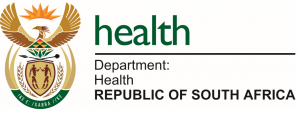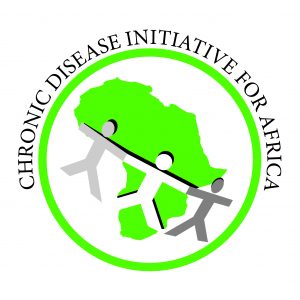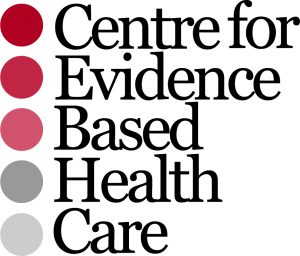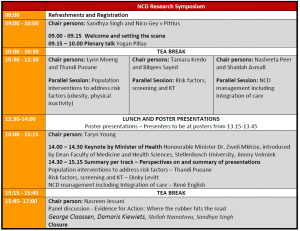NCD Research Symposium







The Department of Health of South Africa in collaboration with the Collaboration for Evidence-based Healthcare and Public Health in Africa (CEBHA+) project hosted the
Non-Communicable Disease (NCD) Research Symposium
4 March 2020, Lord Charles Hotel, Somerset West
The 2030 Agenda for Sustainable Development recognises NCDs as a major challenge for sustainable development. Evidence-informed decision-making is at the core of addressing the impact of NCDs and in advancing progress to achieving the SDGs as well aspirations for the African continent elaborated in Agenda 2063.
The National NCD Research Symposium was an opportunity to bring together researchers, policymakers and practitioners to exchange knowledge on prevention and treatment of diabetes, hypertension, cardiovascular disease risk factors, and related mental health conditions; identify the gaps in knowledge base; and discuss implications for healthcare policy and practices.
It was an opportunity for engagement, networking, dialogue with the overall goal of making an impact on health outcomes.
Click here to read article by Michelle Galloway
Programme

Oral Presentations
Please click on the title to view the presentation
Parallel Session: Population interventions to address risk factors (obesity, physical inactivity)
| Time | Title of presentation | Presenter |
| 10.30 – 10.45 | Population-level interventions to increase physical activity to prevent cardiovascular diseases and diabetes in low- and middle-income countries: a systematic review | Solange Durao
|
| 10.45 – 11.00 | Taxed and untaxed beverage consumption by young adults in Langa, South Africa before and one year after a national sugar-sweetened beverage tax | Rina Swart |
| 11.00 – 11.15 | The Impact of Tobacco Control Policy Interventions on the Prevalence of Tobacco Smoking in South Africa, 1998-2017 | Beatrice Nojilana |
| 11.15 – 11.30 | Adapting the Diabetes Prevention Program for low and middle-income countries: Preliminary implementation findings from Lifestyle Africa | Lungiswa Tsolekile |
| 11.30 – 11.45 | Situational analysis of population-level interventions targeting risk factors for diabetes and hypertension in South Africa | Jeannine Uwimana-Nicol |
| Situational analysis of population-level interventions targeting risk factors for diabetes and hypertension, implemented in Rwanda | David Tumusiime | |
| 11.45 – 12.00 | The relationship between perceived and objectively measured attributes of the built environment and physical activity in low- and high-income communities in South Africa | Estelle Lambert |
| 12.00 – 12.15 | If you build it, will they come? Park upgrades, park use, neighbourhood perceptions of urban parks park-based physical activity in urban Cape Town | Clare Bartels |
| 12.15 – 12.30 | WoW! (WesternCape on Wellness): addressing NCD risk factors through health-promoting partnerships and champion networks | Frederick Marais |
Parallel Session: Risk factors, screening and EBP
| Time | Title of presentation | Presenter |
| 10.30 – 10.45 | Measuring Cardiovascular Diseases Risk Factors in South Africa: the policy evidence challenge | Thulile Zondi |
| 10.45 – 11.00 | Applying the Consolidated Framework for Implementation Research to Integrated Knowledge Translation: experiences from South Africa | Nasreen Jessani |
| 11.00 – 11.15 | Hyperglycemia first detected in pregnancy in Cape Town – the need for intervention has never been greater | Dinky Levitt |
| 11.15 – 11.30 | A motivational model for healthy eating in a South African township | Jeroen De Man |
| 11.30 – 11.45 | How to transform the workplace environment to prevent and control risk factors associated with non-communicable chronic diseases. | Darcelle Schouw |
| 11.45 – 12.00 | Reducing the Gap between Evidence and Practice-Improving the Implementation of the South African evidence-based asthma guideline in Primary Health Care of the Western Cape metropole. | Michael Pather |
| 12.00 – 12.15 | The Comparability of Framingham Blood-based and Non Blood-based Cardiovascular Disease Risk Scores: Secondary Analysis of the 2012 WHO STEPs data in Rwanda. | Jean Berchmans Niyibizi |
| 12.15 – 12.30 | Using Citizen Science and participatory research approach to explore community-level cardiovascular disease risk perceptions and communication to support advocacy for pilot interventions in sub-Saharan Africa | Kufre Joseph Okop |
Parallel Session: NCD management including Integration of care
| Time | Title of presentation | Presenter |
| 10.30 – 10.45 | The effect of school-based interventions addressing adolescent mental health in Low-Middle Income Countries: A Systematic Review | Ameer Hohlfeld |
| 10.45 – 11.00 | Lessons from the Adolescents Receiving Continuous Care For Childhood-Onset Chronic Conditions study – transition of overage patients at a paediatric cardiology outpatient clinic. | Lenise Swanson |
| 11.00 – 11.15 | The Tshwane Insulin Project | Paul Rheeder |
| 11.15 – 11.30 | Integrating a team-based community-oriented intervention for stroke | Elsje Scheffler |
| 11.30 – 11.45 | Implementation of comprehensive patient education and counselling for NCDs | Bob Mash |
| 11.45 – 12.00 | Factors associated with poor glycaemic control among patients with multi-morbidities | Bronwyn Myers |
| 12.00 – 12.15 | Integrated models of care for diabetes and hypertension in low-and middle-income countries: A systematic review | Anke Rohwer |
| 12.15 – 12.30 | Integrating screening and care of gestational diabetes and type 2 diabetes prevention through PMTCT into primary health services in South Africa | Mutabazi Jean Claude |
Poster presentations
Please click on the title to view the poster
| Title of presentation | Presenter |
| The modulation of glucose metabolism by leaf teas and their specific bioactive constituents – a systematic review | Liske Kotze-Horstmann |
| Cardiovascular magnetic resonance assessed the phenotypes of myocardial inflammation and fibrosis in chronic rheumatic heart disease patients | Olukayode Aremu |
| Evaluation of valvular pathology, distributions and patterns of enhancement in rheumatic heart disease using cardiovascular magnetic resonance | Petronella Samuels |
| Metabolic Biomarker profiling to Understand Rheumatic Heart Disease Pathogenesis | Daniel Mutithu |
| Profile of adult cardiomyopathy patients in Cape Town – pilot phase of the IMHOTEP Study | Jacqui Cirota |
| Long-term survival of prevalent cases of dilated cardiomyopathy from a tertiary centre in South Africa: IMHOTEP sub-study | Jacqui Cirota |
| Seizures status and associated factors among Epilepsy patients taking Anti-epileptic Drugs in Hiwot Fana Specialised University Hospital, Eastern Ethiopia | Hassen Abdi |
| Self-care practice and associated factors among hypertension patients in public health facilities in Harar Town, Eastern Ethiopia: a cross-sectional study | Hassen Abdi |
| The rationale, design and implementation of the African Cardiomyopathy and Myocarditis Registry Program, the IMHOTEP Study | Jacqui Cirota |
| Dietary Fiber Intake and Metabolic Syndrome Risk Factors among Young South African Adults | Derrick Sekgala |
| Changes in socioeconomic inequalities in overweight and obesity in South African women of childbearing age between 1998 and 2017: a decomposition analysis | Mweete Nglazi |
| The intergenerational transmission of socioeconomic inequalities in overweight and obesity from mothers to their offspring in South Africa, 2017: a decomposition analysis | Mweete Nglazi |
| Improving the capacity of Community Health Workers to prevent and manage Hypertension and Diabetes in Capricorn District, Limpopo province, in South Africa (A Case Study) | Tumiso Malatji |
| A baseline assessment of chronic disease management at a Primary Health Care facilities in Limpopo, Capricorn District Report | Tumiso Malatji |
| Cardiovascular disease risk perception in urban and rural Malawi | Stephen Kasenda |
| Screening strategies for hypertension: a systematic review | Bey-Marrie Schmidt |
| Supporting self-management among patients at risk of, and with newly diagnosed type-2 diabetes in a sub-urban township, South Africa: The SMART2D trial | Peter Delobelle |
| Characteristics of patients at risk of, and with newly diagnosed type-2 diabetes in a sub-urban township, South Africa: SMART2D baseline survey results | Mariam Hassen |
| Self-management of Type 2 diabetes and hypertension: barriers and solutions from patients and their health care providers | Tiny Masupe |
| The development, implementation and evaluation of a training intervention for primary care providers on brief behaviour change counselling, and assessment of the providers’ competency in delivering this counselling intervention | Zelra Malan |
| Priority areas identified by the World Health Organisation for addressing non-communicable diseases in the African region. | Selvan Naidoo |
| In producing evidence summaries to inform WHO policy briefs for the Africa region on non-communicable diseases, is there congruence with the Cochrane dissemination checklist. | Selvan Naidoo |
| Effect of exercise training on insulin sensitivity, hyperinsulinemia and ectopic fat in black South African women: A randomized controlled trial | Melony Fortuin-de Smidt |
| Foodways and food environments in low-income South African communities: citizen science and ethnography | Estelle Lambert |
| Comparison of urban and rural community understanding of cardiovascular disease risk in Ethiopia. | Kiya Kedir |
| Systematic Review of Genetic Factors in the Etiology of Esophageal Squamous Cell Carcinoma in African Populations | Hannah Simba |
| Integration of Gestational Diabetes Mellitus (GDM) screening and post-GDM prevention in primary care: lessons learned from the IINDIAGO project, and not learned from HIV | Jean Claude Mutabazi |
| Experiences of lifestyle change among women with gestational diabetes mellitus (GDM): A behavioural diagnosis using the COM-B model in a low-income setting | Katherine Murphy |
Panel discussion – Evidence for Action: Where the rubber hits the road
While the role of evidence for policy, practice and the public can be appreciated, its use and importance varies. This is because decision-making is inherently political. This gets even more complicated when research results or program data are at best controversial or unexpected, and at worst when they are manipulated and misrepresented by powerful actors. In the era of #fakenews, #antivaxx, and a conflation of morality with individual autonomy, this becomes an increasingly complex web of confusion. In the closing plenary, we highlight the importance of bridging the “know-do” gap and enhancing evidence for action. Stories of how best to do this will be amplified by panelists comprising a variety of evidence-users: policymakers, journalists, ordinary citizens, and researchers. Audience members will be encouraged to engage with the panelists to share their experiences, and discuss strategies strengthening the role of research evidence on decision-making – at any level.
Nasreen Jessani (Chair): Introduction and how to narrow the gap between evidence and policy and practice.
Stellah Namatovu (Social scientist, Makerere University): The power of the police – multi-stakeholder engagement on injury research and policy in Uganda
Damaris Kiewiets (Community Liaison Officer, University of the Western Cape): Citizen engagement- amplifying public voice and advocacy in the quest for good governance decisions
George Claassen (Science journalist Stellenbosch University, Editor News24): Media – friend or foe? Quackery and fraudulent health messages
Sandhya Singh (Director of NCDs, National DoH): The evolution and use of evidence in South Africa’s policy decisions
Acknowledgement
The CEBHA+ project which is funded by the German Federal Ministry of Education and Research (BMBF) as part of the Research Networks for Health Innovation in Sub-Saharan Africa Funding Initiative.
For enquiries please email tracin@sun.ac.za

